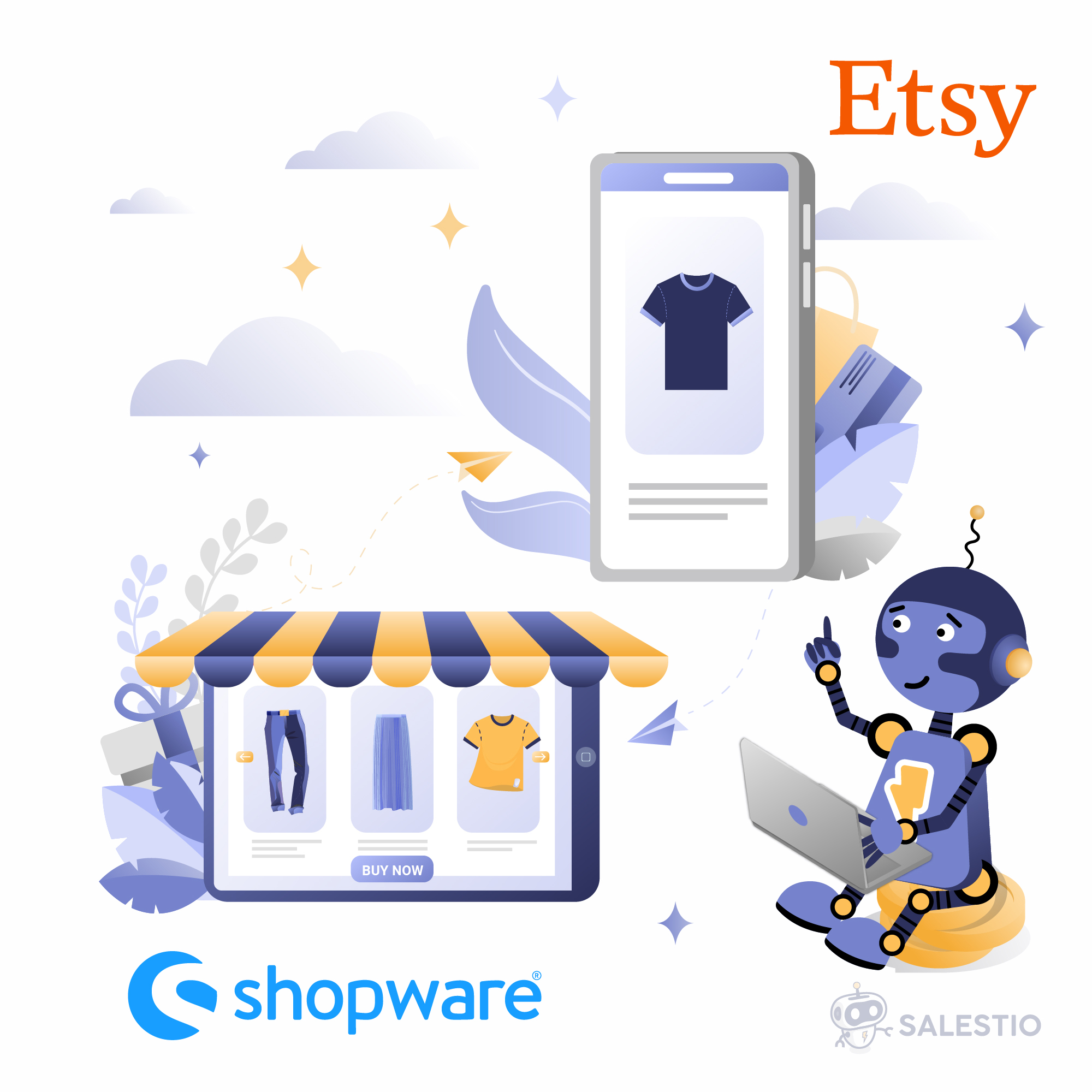12 May'23

In the ever-expanding universe of e-commerce, online marketplaces like Amazon, eBay, and Etsy have emerged as dominant platforms. But with great power comes great responsibility, particularly when it comes to building trust. As a seller, fostering trust with your potential customers can significantly impact your success. This article explores why trust is essential in online marketplaces and how to effectively build it.
Understanding Trust in Online Marketplaces
Trust is the cornerstone of all transactions, even more so in online marketplaces. In this digital age, customers can’t physically touch or inspect products before purchase, making trust a decisive factor in their buying decision.
Firstly, trust is tied to the perceived credibility of the seller. Are they who they claim to be? Do their products match the descriptions? These questions influence a buyer’s trust level. Moreover, the seller’s reliability in terms of delivering products on time and in perfect condition plays a critical role.
Trust also extends to the user experience. A smooth, hassle-free shopping journey, from product search to checkout, helps build confidence in a seller. And buyer’s trust also extends to their interactions with the seller. Effective, prompt communication and a willingness to resolve any issues can greatly enhance trust. After all, buyers want to know they’ll be supported if any problems arise during or after their purchase.
Additionally, a key aspect of trust-building often overlooked is transparency. Be it pricing, shipping costs, or return policies, clear information helps set realistic expectations, reducing the chances of customer dissatisfaction. Buyers tend to trust sellers who don’t have hidden charges or fine print, leading to a more confident purchase decision.
Ultimately, understanding and embracing these nuances of trust can help you stand out in the crowded landscape of online marketplaces, paving the way for increased customer loyalty and repeat purchases.
Trust in online marketplaces is a cocktail of credibility, reliability, and a stellar user experience. It’s about ensuring buyers feel secure in their transactions and satisfied with their overall purchasing journey. In the next section, we’ll delve into how to foster this trust effectively.
Building Trust on Marketplaces – Best Practices
Building trust is not an overnight process; it requires consistent effort and a genuine commitment to customer satisfaction. Let’s explore the best practices that can help you foster trust in online marketplaces.
High-quality product images and accurate descriptions are paramount. These two elements are the online equivalent of a buyer examining a product in a physical store. Ensure your images are clear and detailed, showcasing the product from various angles. Couple this with an honest, comprehensive product description to help the customer make an informed decision.
Encourage and showcase customer reviews. Feedback from previous buyers serves as social proof, demonstrating to potential customers that you’re a reliable seller. Respond to reviews, especially negative ones, in a professional and constructive manner to show you value customer feedback and are ready to address any issues.
Reviews play a different role on each platform, so understanding these nuances can be a game-changer.

On Amazon, reviews typically attach to the product rather than the seller. However, these reviews can influence a buyer’s decision, particularly when multiple sellers are offering the same product. While you may not control these reviews directly, you can influence them. Ensuring product quality, accurate descriptions, and excellent customer service can help generate positive product reviews.

For eBay, feedback about the seller is more significant than product reviews. Buyers pay keen attention to the seller’s feedback score, which reflects their overall performance and reliability. Therefore, every transaction matters. Prompt shipping, quick responses to queries, and resolving issues efficiently can help you earn positive feedback, enhancing your seller’s reputation.

Etsy, on the other hand, places a high value on both product and seller reviews. As Etsy hosts unique, often handmade items, buyers rely heavily on reviews to gauge product quality and seller reliability. Actively request reviews from satisfied customers. You can do this through a gentle reminder in your thank-you note or a follow-up message post-purchase. Remember, your approach should be polite and non-pushy.
Shipping and return policies should be clearly stated and easy to find. Hidden charges or complicated procedures can deter customers. Offering options like free shipping, tracking numbers, and hassle-free returns can enhance the buying experience and build trust.
Maintain a strong seller profile. Share information about your business, your story, and your values. A personal touch can go a long way in fostering a connection with buyers. It humanizes your brand and reassures customers that there are real people behind the operations.
Communication is key. Be responsive to customer inquiries and provide timely updates about their orders. Quick, helpful responses not only resolve customer concerns but also demonstrate your commitment to customer service.
Offer a secure payment process. Customers want to know their financial information is safe. Use secure payment gateways and highlight the security measures you have in place to protect customer information.
Finally, ensure a seamless user experience. A well-organized product listing, an easy-to-navigate store, and a simple checkout process can significantly enhance the customer’s shopping experience, fostering trust and encouraging repeat purchases. Remember, every interaction a customer has with your store contributes to their perception of trust.
Leveraging Online Stores for Trust-building
Online stores, such as Shopify, BigCommerce, Shopware, and WooCommerce, offer a unique opportunity to enhance trust. When integrated with marketplaces, they can provide a seamless, consistent shopping experience, which plays a pivotal role in trust-building.
Unified Branding Across Platforms
Consistent branding across your marketplace listings and online store foster familiarity and trust. Use the same logo, color scheme, and tone of voice everywhere you sell. This unified branding signals professionalism and legitimacy to potential customers. Additionally, it helps customers recognize your brand instantly, regardless of the platform they’re using.
Collecting and Showcasing Reviews
Most online store platforms have built-in features or plugins for collecting and displaying reviews. For example, Shopify offers apps like Yotpo and Judgeme that automate the review collection process. Remember to request reviews after a successful transaction, just like on marketplaces. Showcasing these reviews on your online store and sharing them on your marketplace listings can provide additional social proof, further building trust.
Improved User Experience and Customer Support
Online stores allow you greater control over the user experience than marketplaces. You can design a user-friendly interface, offer personalized recommendations, and provide efficient customer support. These aspects can significantly contribute to trust-building.
To illustrate the difference between marketplaces and online stores, let’s consider the following table:
| Amazon | eBay | Etsy | Shopify | BigCommerce | |
|---|---|---|---|---|---|
| Product Reviews | Shared among sellers | Rare, seller feedback is more important | High importance | App-based, high control | App-based, high control |
| Seller Branding | Limited | Limited | Moderate | High, fully customizable | High, fully customizable |
| User Experience | Controlled by Amazon | Controlled by eBay | Controlled by Etsy | High control, customizable | High control, customizable |
| Customer Support | Amazon’s policies | eBay’s policies | Etsy’s policies | High control, customizable | High control, customizable |
From the table, it’s clear that while marketplaces offer reach and visibility, online stores provide you with more control over key aspects of trust-building.
Conclusion

Trust is the foundation of success in online marketplaces. Whether you’re selling on Amazon, eBay, or Etsy, or running your own store on platforms like Shopify, BigCommerce, Shopware, or WooCommerce, building trust with your customers should be a top priority.
From maintaining a strong seller profile to providing a seamless user experience, every aspect counts in this journey. Remember, each positive interaction, each successful transaction, and each satisfied customer brings you one step closer to establishing a trustworthy brand.
Don’t underestimate the power of reviews and ratings. They are your digital word-of-mouth, your social proof in the vast sea of online selling. Similarly, ensure your shipping and return policies are transparent and customer-friendly.
Leverage the control that online stores offer to provide an even more personalized and secure shopping experience. Consistent branding across platforms can go a long way in fostering familiarity and trust.
At the end of the day, trust in online marketplaces boils down to one simple principle: Treat your customers the way you’d like to be treated. With sincerity, respect, and a commitment to their satisfaction. By incorporating these strategies into your online selling, you’re not just building trust, you’re building a loyal customer base for sustained success.
Remember, in the realm of e-commerce, trust isn’t just a commodity. It’s the currency. So, invest wisely and reap the rewards.






